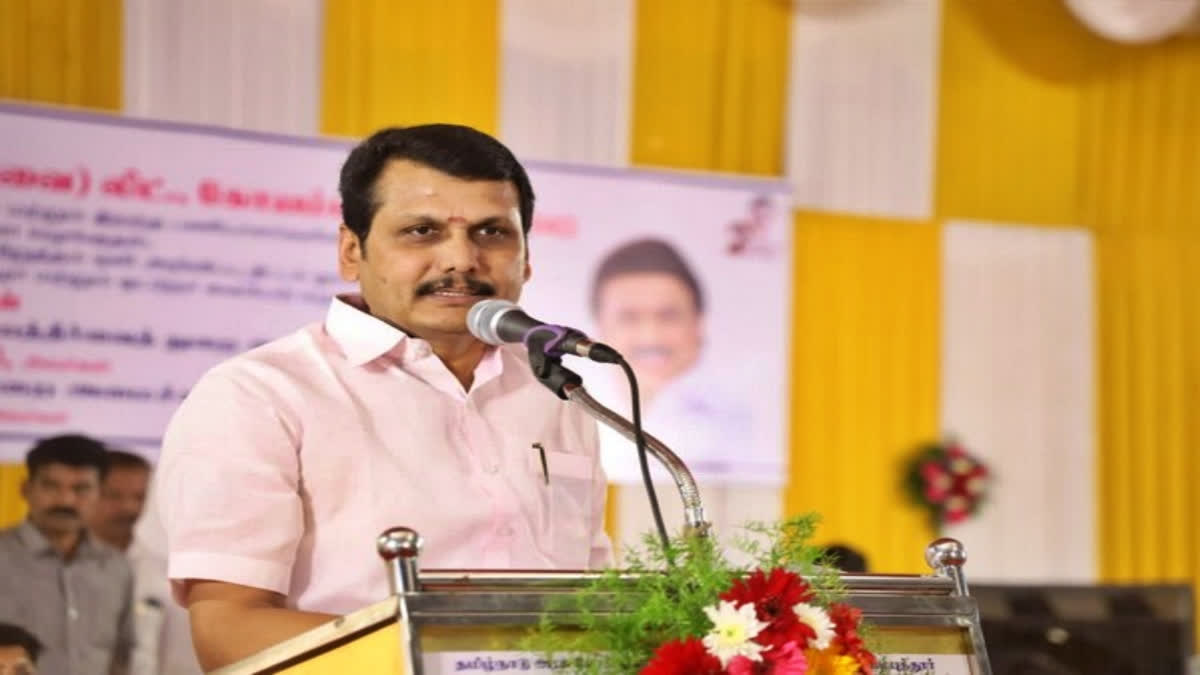Chennai (Tamil Nadu): The hearing on the habeas corpus petition filed by Senthil Balaji's wife Megala is currently underway in the Madras High Court. The wife of arrested Tamil Nadu minister V Senthil Balaji has submitted an affidavit in the Madras High Court accusing state Bharatiya Janata Party chief K Annamalai of "nursing a grudge" against her husband.
Senthil Balaji was arrested on June 14 by the Enforcement Directorate in a cash-for-jobs scam. Appearing for the Enforcement Directorate (ED), Solicitor General (SG) Tushar Mehta on Tuesday argued at Madras High Court that the habeas corpus petition filed by the wife of Tamil Nadu Minister Senthil Balaji is not maintainable as "there is no code of Criminal Procedure (CrPC) provision that requires grounds of arrest to be reduced to writing".
"There is no CrPC provision that requires grounds of arrest to be reduced to writing. Section 19 of PMLA allows the authority to arrest a person if there is reason to believe that he is guilty of an offence under the act," Tushar Mehta said in the High Court. The grounds for the arrest are to be informed as soon as possible and not immediately, Tushar Mehta further argued.
Justices J Nisha Banu and D Bharatha Chakravarthy allowed Senior Counsel NR Elango to make his brief submission before Solicitor General Tushar Mehta. NR Elango continued his arguments by responding to the additional counter of the Enforcement Directorate where he cites Supreme Court judgments including Navlakha case orders. after NR Elango finishes, Solicitor General, SG, Tushar Mehta began arguments for Enforcement Directorate.
NR Elango said that arrest intimation and grounds of arrest documents could not have come into existence by 1.39 am on June 14, says the documents reached before the principal sessions judge on June 16, and not on June 14, this shows 'no application of mind' by the judge. Justice Chakravarthy questioned whether is there a necessity for Enforcement Directorate officials to follow Section 41A of CrPC and issue summons before arrest if the officer was satisfied that there are reasons to arrest the accused.
NRE says, in the present case, Enforcement Directorate officials have not established the absolute necessity to arrest. NR Elango argued in the court that the power of the Enforcement Directorate to subject an accused to custodial interrogation and Enforcement Directorate officials do not have any such power. No power has been given by the Parliament consciously to an investigation officer of the Enforcement Directorate under the PMLA and courts cannot confer such power on them, he said.
